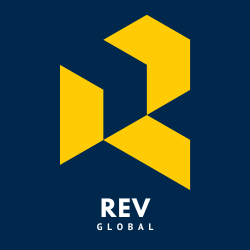As businesses increasingly adopt Artificial Intelligence (AI), the need for expert guidance has grown. AI consultants and advisors help companies navigate AI implementation, optimize strategies, and maximize returns on AI investments. However, selecting the right AI consultant requires a structured approach to ensure alignment with business goals. This guide provides a step-by-step decision-making framework to help firms choose the right AI advisor.
Step 1: Define Your AI Needs
What Do You Need an AI Consultant For?
Before engaging an AI advisor, clarify your business objectives and the specific areas where AI can provide value. AI consultants typically specialize in different aspects, such as:
-
AI Strategy Development – Defining AI roadmaps and business integration plans.
-
AI Implementation & Deployment – Selecting and integrating AI tools into operations.
-
Data Science & Machine Learning – Custom AI model development and optimization.
-
AI Ethics & Compliance – Ensuring responsible and regulatory-compliant AI use.
-
Process Automation & Optimization – Leveraging AI for efficiency gains.
✅ Action Item: Identify key areas where AI consulting can add value to your business.
Step 2: Research & Shortlist AI Consultants
Where to Find AI Advisors
-
Industry Networks & AI Conferences – Identify thought leaders and AI professionals.
-
AI Consulting Firms – Companies specializing in AI strategy and implementation.
-
Freelance Platforms – Independent AI consultants on sites like Upwork and Toptal.
-
University & Research Institutions – Collaborate with AI experts in academia.
-
Referrals & Case Studies – Seek recommendations from industry peers.
✅ Action Item: Create a shortlist of AI consultants based on their expertise, reputation, and experience in your industry.
Step 3: Evaluate Consultant Expertise & Fit
Key Factors to Assess
-
Industry Experience – Does the consultant have a track record in your sector?
-
Technical Proficiency – Are they skilled in relevant AI technologies (machine learning, NLP, automation, etc.)?
-
Strategic Thinking – Can they align AI with your business goals?
-
Proven Success – Do they have case studies or client testimonials?
-
Communication Skills – Can they explain AI in a way that decision-makers understand?
✅ Action Item: Conduct preliminary interviews and request references or case studies.
Step 4: Define Scope, Deliverables & Budget
Setting Clear Expectations
Before signing an agreement, outline key engagement details:
-
Project Scope: Define specific AI initiatives the consultant will support.
-
Deliverables: Set clear objectives (e.g., AI strategy roadmap, implementation support, training, etc.).
-
Timelines: Establish project phases and deadlines.
-
Budget & Pricing Model: Determine whether pricing is hourly, fixed-fee, or retainer-based.
✅ Action Item: Draft a contract that includes scope, expected outcomes, and confidentiality agreements.
Step 5: Monitor Progress & Optimize Engagement
Ensuring a Successful AI Advisory Engagement
-
Regular Check-Ins – Schedule progress meetings to track milestones.
-
Flexibility & Adaptation – Be open to adjusting strategies based on AI insights.
-
Knowledge Transfer – Ensure your internal team learns from the consultant for long-term AI sustainability.
✅ Action Item: Set up performance reviews and feedback loops to measure AI consulting effectiveness.
Hiring an AI consultant is an investment in your company’s future. By following a structured selection process, businesses can ensure they partner with the right advisor who brings both technical expertise and strategic vision.
💡 Ready to find the right AI consultant? Contact us for expert guidance on AI advisory solutions!

